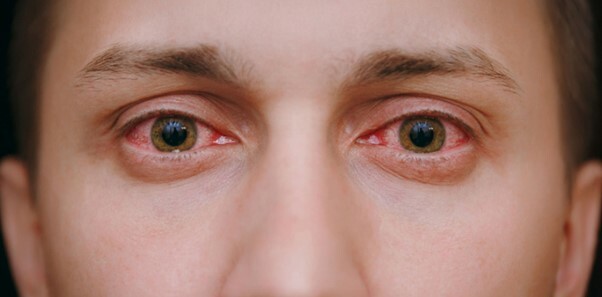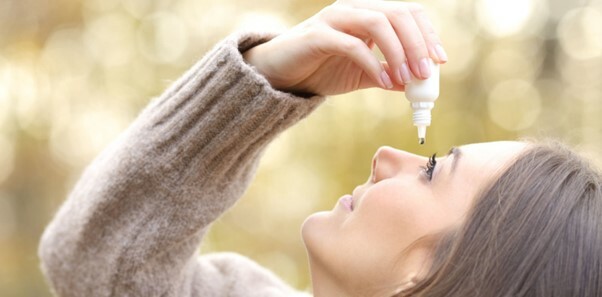How to prevent Dry Eye this winter
Dry Eye syndrome is a common condition that can affect you at any time of year, but it’s typically worse in the winter months.
Tears naturally lubricate and hydrate the surface of the eyes, helping to keep them moist. Sometimes, tears can dry out or evaporate too quickly, or your eyes stop producing sufficient tears. This is known as Dry Eye syndrome.
Dry Eye symptoms

Dry Eye syndrome can cause a range of unpleasant symptoms, including dry, itchy eyes in winter. Other symptoms include:
- blurry vision
- sore eyes
- red eyes
- watery eyes
- light sensitivity
- a gritty sensation
What causes Dry Eye syndrome?

You’re more likely to get Dry Eye syndrome as you get older. Several environmental factors can also contribute to it, including the following:
- Cigarette smoke – studies have shown that smoke damages the lipid layer on the eye, which reduces the hydrating and lubricating effect that the tears have.
- Cold wind – this can cause your tears to evaporate quicker than usual and dry out your eyes.
- Air conditioning and central heating – both dry out the air around you and reduce the level of moisture in your eyes.
- Screens – if you use a computer for work or studying, or use digital devices often, you’ll likely spend long periods looking at a screen. Studies have shown that people blink less when they’re looking at a screen, which means the eyes get less lubrication, as blinking usually spreads moisture over their surface area.
Dry eye treatment

There are plenty of things you can do at home to alleviate your symptoms and prevent them from getting worse.
If you work at a screen, take regular breaks. We recommend going by the 20-20-20 rule – look away every 20 minutes for 20 seconds at something 20 feet away. Remember to think and blink too, to help keep your eyes moist!
If you’re outside in the cold, on bright days, you can always wear sunglasses or glasses with photochromic lenses that adjust to light conditions. Wearing this can help prevent cold wind from getting to your eyes and drying them out.
Avoid smoky environments and don’t stand near people who are smoking. If you smoke, it’s advisable to take steps to quit for your eye health as well as your health in general.
A lot of us spend all day indoors with the central heating on during winter. Take some time in the fresh air, or alternatively, you can invest in a humidifier to help add moisture back to the air.
Eye drops and warm compresses

Although there is no permanent cure for Dry Eye, directly increasing the moisture in your eyes can also be a big help in managing symptoms. There are several ways you can do this.
A warm compress held over your eyes will soothe irritated or itchy eyes and will help to unblock your Meibomian glands, which help to produce the oil for your tears and stimulate them to help moisten your eyes.
Eye drops act like artificial tears, and ongoing use can help temporarily restore the natural balance of your tear composition. There are also different ointments and gels available for use at night or for more severe cases of Dry Eye, which we can advise you about, as well as preservative free options which are especially useful for contact lens wearers.
Contact our opticians located in Brighouse
If you’re experiencing dry eyes and persistent symptoms that you want to alleviate this winter, get in touch with our opticians located in Brighouse today.
 01484 713291
01484 713291 7 Bethel Street, Brighouse, HD6 1JR
7 Bethel Street, Brighouse, HD6 1JR
